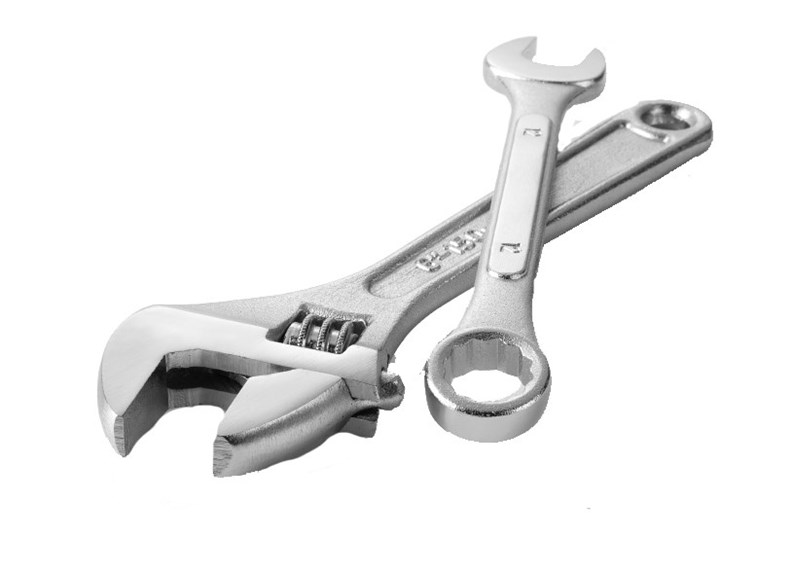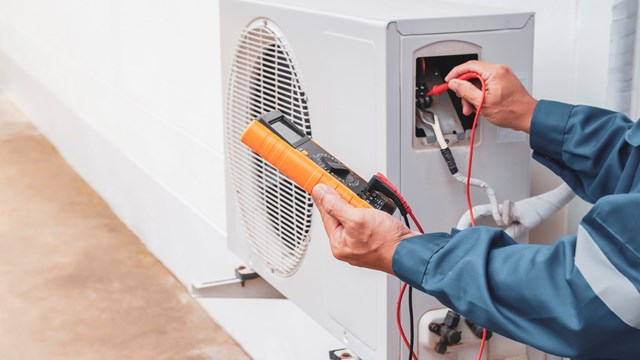When the weather outside is frightful, a functioning boiler system pumping soothing warmth into each and every apartment in your building is definitely delightful. Keeping boiler systems in tip-top shape is paramount to ensuring that warmth continues all winter long. Happily, that's not too difficult to do with a little regular maintenance and a good thorough cleaning each fall and spring. If your boiler's giving you fits this winter, the following may help you avoid the chill next year.
Semi-annual cleanings are vital to maintaining peak boiler efficiency. Irwin Sandler, president of Brooklyn-based Nu-Way Boiler and Nu-Way Environmental, recommends that oil and gas burners undergo a major cleaning before and after each heating season, usually around September and then again in April or May. This is not a job for your super to tackle, no matter how capable he or she may be. Professional personnel and equipment should be brought in to get the job done properly. In general, the cleaning consists of wire-brushing all fire tubes, and vacuum-cleaning the entire boiler, breaching, chamber and chimney base.
Without these cleanings, significant debris can build up, hobbling your boiler's efficiency. That can mean significant financial loss; the less efficient the boiler, the more fuel will be needed to achieve the same level of heat. According to Sandler, tests also have shown that - depending on the system - even as little as an eighth of an inch of soot can reduce boiler efficiency by as much as 30 percent.
Dangerous chemical combinations also can result from soot and the water that runs throughout the boiler system. "Soot is 80 percent sulfur," says Sandler. "Mixing it with water creates sulfuric acid, which eats away at your pipes."
A trained mechanic should also be brought in to overhaul your building's burner each fall to insure proper combustion. The boiler should be checked thoroughly for leaks, gaskets should be inspected, and any leaking tubes or open seams attended to immediately.
During the heating season, boilers should receive supplementary cleanings. Depending on the quality of fuel used, the boilers should be given the once-over anywhere from every 30 days to every six months.
"A once-a-year overhaul is a pretty intense process," says Richard Blaser, president of Atlas Welding and Boiler Repair in the Bronx. "It can take half a day to a day." The key to minimizing the intensity of the yearly check-up involves careful maintenance of the system throughout the year. Daily and weekly check-ups include cleaning oil filters, flushing down the boiler, checking smoke alarms, keeping air filters clean, for a start. Following these simple upkeep guidelines should keep major problems or surprises at a minimum.
"I've seen boilers that are 50 to 60 years old," Sandler says. "It's like with cars. One person can keep a car 20 years while others can keep it for seven or eight. It's like anything - if you take care of it, it'll last."
According to Blaser, two major weapons prove especially invaluable in the war against boiler breakdown. "There are two things I recommend to everyone: a water meter on the make-up line, and a stack thermometer," he says.
A water meter measures the amount of water sent to the boiler to make up for the water lost either in the everyday workings of the boiler or - more importantly - in any leaks that may have developed in the piping.
"The heating system is a loop," Blaser says. "Water gets heated in the boiler, goes up to the heating system through pipes, then comes back down. In the real world, there are always slight losses here and there. But you always want to maintain a certain level of water in the boiler to heat apartments." A make-up line helps keep that level steady, feeding cold water into the system. The water meter shows how much water the make-up line is providing. "If you monitor how much make-up water is being used, then you'll know the severity of the any potential leak problem," Blaser says. "Leaks will only get worse. They need to be monitored and fixed."
Eventually, if the leaks become too severe, a boiler may undergo something called "dry firing." "Imagine your tea kettle with water in it," Blaser says. "If it's got water there, it's fine. But imagine if you left the flame on and all the water evaporated. The metal tea kettle will melt. If there's no water in the boiler, that's a problem. Your boiler will melt."
On a slightly less severe end of the spectrum, leaks will cause a drain on heating expenses. "When you add cold water to hot, you have to add even more heat to get it to boil again," Blaser says. Basically, the boiler will have to work overtime to sustain the same level of heat as a well-maintained system.
The second instrument - the stack thermometer - monitors the amount of heat lost each day through the boiler's exhaust system. A lack of efficiency can be an indication of soot build-up. "As the boiler operates and heats up water for steam, there's a certain amount of heat that goes up the chimney," Blaser says. "As the boiler becomes less efficient, more heat goes up the chimney. When the boiler is efficient, the temperature will be low. When it's less efficient, the temperature will be higher because the heat isn't being used to heat the water anymore, but is escaping instead. If the temperature is rising, you want to get the boiler cleaned to get it back to optimal efficiency."
The water meter and stack thermometer, Blaser believes, "can really help you keep your system operating as best as it can."
If a major problem does occur with a building boiler or burner, there is a wide range of options available to the building manager. "There are certain problems you can live through for a day or two," Blaser says. "Other problems, the big problems, might require mobile boilers. It's going to be expensive. You really only want to do this when the problem is extremely severe, like a meltdown."
The best-case scenario is avoiding the dire situation in the first place. "You don't want to get into a situation where you aren't monitoring your boiler and it goes out. You want to avoid things like this by being proactive. A well-maintained boiler can give you 30 good years."
Given the price tag on today's state-of-the-art boiler systems, it's in a building's best financial interest to keep that machinery purring happily. Depending on the size of the building and the type of boiler, prices for a brand-new one can average anywhere from $100,000 to $300,000 - not exactly an impulse buy.
Insurance can help ease a little price tag anxiety. "In case of accidents, it's important to have an insurance policy that covers your boiler," Blaser says.
Still, though, the best offense, as they say, is a good defense. Vigilant cleanings and maintenance along with daily and weekly upkeep and examinations stand as the best way to make those boilers last.







Comments
Leave a Comment